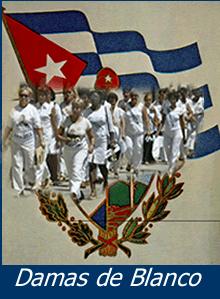(My new American Thinker post)
I don't know about the climate but I do know that President Obama passed the "stimulus" with huge majorities in the US Congress. I'm sure we all remember that VP Biden was put in charge of overseeing the stimulus back in the summer of 2009.
These bad numbers mean that the 2016 GOP message must be about growth and more growth. The US economy has a bad case of inertia. Nobody is pumped up and that's what these numbers are telling me.
The 2016 GOP nominee must explain how tax reform, cutting back regulations, repealing Obama Care and expanding "fair trade" will make life better for all.
The Democrats will spin their class warfare vinyl on the turntable.
It's up to the GOP to present a clear message that explains how these ideas will mean better jobs and stronger communities.
Tags: GDP first quarter 2015 To share or post to your site, click on "Post Link". Please mention / link to the My View by Silvio Canto, Jr. Thanks!
Here we go again. Another round of disappointing economic
news in year 7 of "hope and change" and summer 6 of the stimulus.
According to The Wall Street Journal, there is not a lot to cheer "yes we can" about:
According to The Wall Street Journal, there is not a lot to cheer "yes we can" about:
"The U.S. economy expanded at a 2.3% seasonally adjusted annual pace in the second quarter.
If the number sounds familiar, there’s a good reason.
The economy has been growing at about that pace for six years. From the end of the recession in mid-2009 through the end of last year the economy grew at a 2.2% annual pace."
It gets more depressing:
"The economic expansion—already the worst on record since World War II—is weaker than previously thought, according to revised data.
From 2012 through 2014, the economy grew at a rate of 2.0% annually.
That’s a 0.3 percentage-point downgrade from prior estimates."
We will probably hear from the Obama administration that this is
because the GOP has been blocking the President's agenda or that climate change
has made winters longer and more unbearable. (Or is it that summers are
longer?)
I don't know about the climate but I do know that President Obama passed the "stimulus" with huge majorities in the US Congress. I'm sure we all remember that VP Biden was put in charge of overseeing the stimulus back in the summer of 2009.
These bad numbers mean that the 2016 GOP message must be about growth and more growth. The US economy has a bad case of inertia. Nobody is pumped up and that's what these numbers are telling me.
The 2016 GOP nominee must explain how tax reform, cutting back regulations, repealing Obama Care and expanding "fair trade" will make life better for all.
The Democrats will spin their class warfare vinyl on the turntable.
It's up to the GOP to present a clear message that explains how these ideas will mean better jobs and stronger communities.
P. S. You can listen to my show (Canto Talk) and follow me on
Twitter.
Thursday July 30: A look at the latest GDP 2nd quarter numbers with Frank Burke........ http://t.co/m06As04A4z
— Silvio Canto, Jr. (@SCantojr) July 30, 2015
Tags: GDP first quarter 2015 To share or post to your site, click on "Post Link". Please mention / link to the My View by Silvio Canto, Jr. Thanks!






